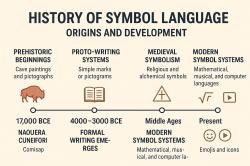Did Hippocrates write the Hippocratic Oath?
The authorship of the Hippocratic Oath is a subject of historical inquiry and debate, and it is not definitively established that Hippocrates, the ancient Greek physician often referred to as the "Father of Medicine," wrote the oath himself. The exact origins and authorship of the Hippocratic Oath are shrouded in antiquity, and it is attributed to the Hippocratic school of medicine rather than to Hippocrates as an individual. Here are some key points to consider:
Attribution to the Hippocratic School: The Hippocratic Oath is associated with the teachings and traditions of the Hippocratic school of medicine, which was active in ancient Greece around the 5th century BCE. This school emphasized certain ethical principles and practices in the field of medicine.
Multiple Versions: Over the centuries, various versions of the Hippocratic Oath have been documented, with differences in language, content, and emphasis. These differences suggest that the oath may have evolved over time, and its authorship may have been collective within the Hippocratic school.
Hippocrates' Writings: Although Hippocrates is known for his extensive writings on medicine and his contributions to medical knowledge, the Hippocratic Oath itself is not found in his surviving works. None of the writings attributed to Hippocrates contains the full text of the oath as it is known today.
Ancient Traditions: The practice of taking an oath by physicians in antiquity, pledging to uphold ethical standards in their medical practice, predates the specific formulation of the Hippocratic Oath. Similar ethical commitments were made by physicians in various cultures and time periods.
Historical Uncertainty: Due to the lack of conclusive historical records and the passage of time, it is challenging to definitively attribute the authorship of the Hippocratic Oath to a single individual, including Hippocrates himself.
In summary, while the Hippocratic Oath is closely associated with the Hippocratic school of medicine and its ethical teachings, it is not clear whether Hippocrates personally wrote the oath. The true authorship may remain a historical mystery, but the ethical principles it conveys have had a lasting influence on the practice of medicine and medical ethics.
Hippocrates and the Hippocratic Oath: Separating Fact from Myth
Hippocrates is considered the father of Western medicine. He was a Greek physician who lived in the 5th century BC. He is credited with developing many of the basic principles of medicine, including the importance of observation and the use of scientific methods.
The Hippocratic Oath is a set of ethical principles that physicians have sworn to uphold for over 2,500 years. The oath is attributed to Hippocrates, but there is some debate among scholars about whether he actually wrote it.
The Origins of the Hippocratic Oath: Who Wrote It?
The Hippocratic Oath is a collection of writings from different authors and time periods. The earliest version of the oath is thought to have been written in the 5th century BC. However, the oath was not widely known until the Middle Ages.
It is not clear who wrote the original version of the Hippocratic Oath. Some scholars believe that it was written by Hippocrates himself. Others believe that it was written by a group of Hippocrates' students or followers.
Tracing the History and Authorship of the Hippocratic Oath
The Hippocratic Oath was first translated into Latin in the 12th century. This made the oath more accessible to physicians throughout Europe.
The Hippocratic Oath became increasingly popular in the 16th and 17th centuries. This was due in part to the rise of the scientific method and the increasing emphasis on medical ethics.
The Hippocratic Oath is still used today by medical schools around the world. It is a reminder of the ethical principles that physicians should uphold in their practice of medicine.
Who actually wrote the Hippocratic Oath is a mystery that may never be definitively solved. However, the oath is still relevant today because it emphasizes the importance of the physician-patient relationship, the physician's responsibility to act in the patient's best interests, and the physician's duty to do no harm.
The Hippocratic Oath is a valuable guide for physicians in making ethical decisions in contemporary healthcare. It is a reminder of the physician's obligations to their patients and to society.











